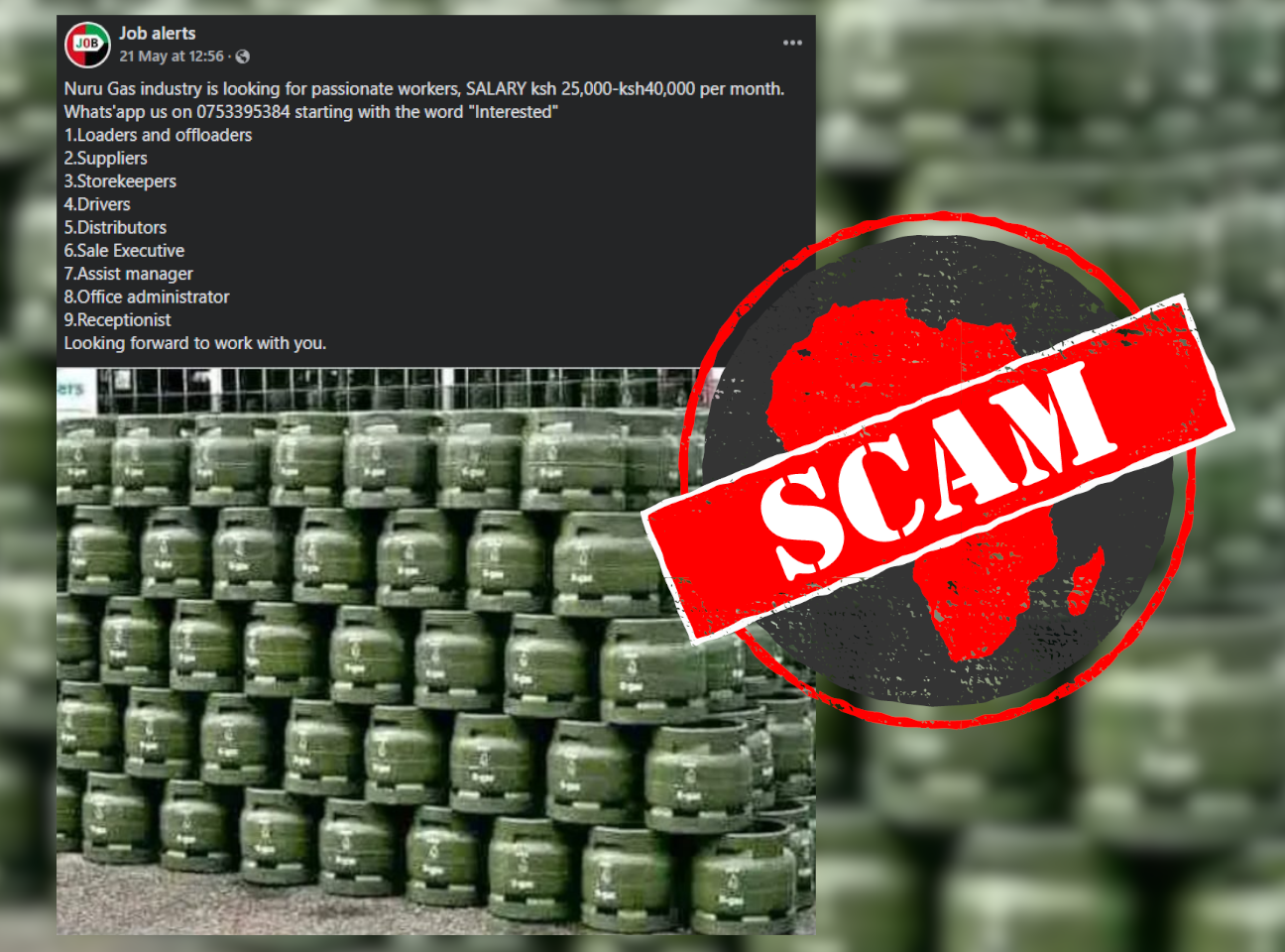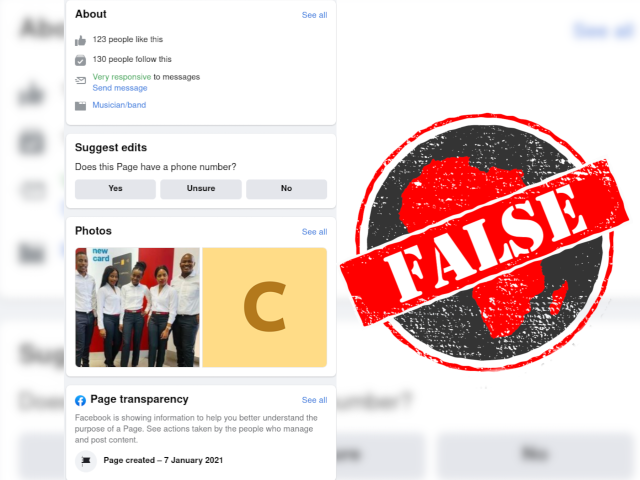IN SHORT: One of the signs of an online job scam is when applicants are asked to pay a fee “for registration”. This is the case in Facebook posts circulating in Kenya, where the company Nuru Gas says it is not hiring.
“Nuru Gas industry is looking for passionate workers. The salary is KSh25,000-KSh40,000 per month,” reads an enticing job ad posted on Kenyan Facebook pages and groups in March, April and May 2023.
Nuru Gas Limited is a Kenyan energy company that sells cooking gas cylinders.
The ad list various positions that are apparently available in the company, including loaders, suppliers, storekeepers, drivers, distributors, sales executives and receptionists.
It then provides a phone number and asks those interested to WhatsApp or call for the opportunities.
The WhatsApp numbers aren’t all the same; different contacts appear in different versions of the ad, on different Facebook pages and groups.
The ad appears here, here, here, here, here, here, here, here, here and here.
But is this a genuine job offer from Nuru Gas? We checked.

Clues of a scam
The poor writing in the ad is the first sign that it’s a scam. A major company wouldn’t send out an ad with random capitalisation and odd punctuation.
While the ads claim that Nuru Gas is hiring, most of them actually feature a photo of K-gas cooking gas cylinders. These are products of another company, RUBiS Energy Kenya. This is another red flag.
Africa Check contacted the various WhatsApp numbers provided and each time we were asked to deposit KSh200 for “reservation, paperwork and registration”. This is a clear sign of a scam. Most reputable companies would not ask for money in exchange for work.
We reached out to Joseph Kamau, the director of Nuru Gas company, and asked if they were hiring. They were not, he said, and all the circulating adverts were scams.
To protect yourself from these scams see Africa Check’s guide to Facebook scams and how to spot them.
Republish our content for free
For publishers: what to do if your post is rated false
A fact-checker has rated your Facebook or Instagram post as “false”, “altered”, “partly false” or “missing context”. This could have serious consequences. What do you do?
Click on our guide for the steps you should follow.
Publishers guideAfrica Check teams up with Facebook
Africa Check is a partner in Meta's third-party fact-checking programme to help stop the spread of false information on social media.
The content we rate as “false” will be downgraded on Facebook and Instagram. This means fewer people will see it.
You can also help identify false information on Facebook. This guide explains how.



Add new comment